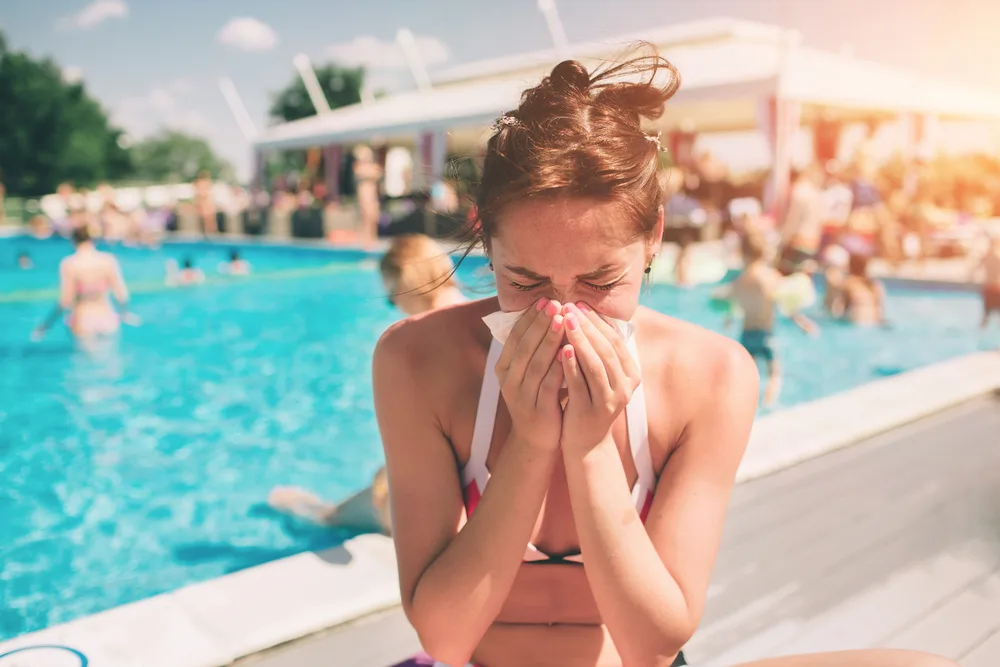Getting ill while on holiday is never part of the plan. But sometimes, your body doesn’t check the itinerary. Whether it’s a dodgy seafood paella in Spain or a surprise fever while hiking through the Andes, getting sick abroad can feel stressful and isolating. But don’t worry, we’ve got your back. Here’s a friendly step-by-step guide to help you stay calm, stay safe, and feel better, faster.
9 Essential steps to take if you get sick abroad
1. Don’t panic: pause, breathe, assess
When you’re unwell in a new place, it’s easy to spiral out of control. You’re far from home, your travel partner might be panicking, and suddenly, the language on the pill box looks more like a cryptic crossword.
The first step? Pause. Breathe. Take stock of your symptoms. Is this something minor, like a touch of food poisoning or sunstroke? Or are you experiencing severe symptoms like high fever, difficulty breathing, or severe pain?
You don’t need to make any decisions right away, but tuning into how you feel is a great place to begin.

2. Let someone know
Make sure someone knows you’re not feeling well. A travel companion can fetch water, medication, or help navigate local services. Travelling solo? Contact your hotel reception, tour guide, or local host. They’ll likely know how to help or who to call.
Even letting a family member back home know your situation can be comforting – and practical, in case you need assistance contacting your insurer or embassy.
3. Use your travel insurance (that’s us!)
This is where having comprehensive travel insurance with InsureandGo pays off.
If you’re feeling unwell and think you might need to see a doctor or go to a hospital, contact our 24/7 medical assistance team straight away. We’re here day and night, wherever you are in the world.
We’ll help you:
- Find an English-speaking doctor or medical facility nearby
- Understand what your policy covers
- Provide guarantees of payment where needed (so you’re not out of pocket)
- Liaise with medical staff if language is a barrier
- Arrange transport or repatriation, if necessary
Keep your policy number handy, and if you’ve got your documents saved digitally, even better.
4. Keep the receipts and doctor’s notes
If you end up paying out-of-pocket for things like prescriptions or consultations (which sometimes happens depending on the country and facility), keep the receipts safe. Take photos of them too, just in case they go missing.
It’s also helpful to note:
- The date and location of your treatment
- The name of the doctor or clinic
- A brief explanation of your symptoms and diagnosis
- Any medication prescribed
This will help make any claims process smoother once you’re back home.
5. Look after yourself
If the doctor recommends rest, embrace it. We know it’s frustrating when you’ve been planning your holiday for months. But your health comes first.
Stock up on fluids, stick to bland foods, and give your body a chance to recover. Sometimes a quiet day in with a book or film is all it takes to bounce back.
6. Ask about local remedies (safely)
Many countries have their own approach to treating common illnesses, like herbal teas for nausea in Thailand or menthol balms in Latin America. If you’re curious about local remedies, ask your pharmacist or doctor if they’re safe to use alongside any prescribed medication.
Just avoid taking unknown tablets from market stalls or unlicensed vendors! When in doubt, ask us for advice.
7. Use your GHIC in Europe
If you’re travelling in Europe and have a valid GHIC, you’re entitled to state-provided healthcare at the same cost as a local. But remember, this doesn’t always mean it’s free. And it definitely doesn’t cover extras like private treatment or repatriation. That’s where your travel insurance comes in.
Learn more about using the Global Health Insurance Card (GHIC) when travelling in Europe.
8. When to cut the trip short
If your condition isn’t improving or worsens, and your doctor advises returning home early, our emergency assistance team can help organise this. Depending on your policy, this may be covered, especially if it’s deemed medically necessary.
We’ll liaise with airlines, arrange a medical escort if required, and ensure you get home safely and comfortably.
9. Learn for next time
Once you’re back home, reflect on what happened. Was it a simple case of bad luck, or something preventable? Some tips for next time:
- Always pack a basic medical kit
- Use bottled water and avoid tap water
- Wash hands before meals, after using the bathroom and visiting markets
- Keep your travel insurance details accessible
Sickness might throw off your travel plans, but it doesn’t have to ruin your whole trip.
Check out our top 10 travel hacks to help you travel smarter next time.
Stay protected, wherever you travel
We’re not just here for when the sun’s shining. We’re here when things go sideways, too. With InsureandGo, you’re protected from the unexpected, whether it’s a minor tummy bug or something more serious.
From 24/7 medical support to flexible policies that suit your needs, we’ll help you travel with confidence, comfort, and a sense of adventure – no matter what the journey brings.


